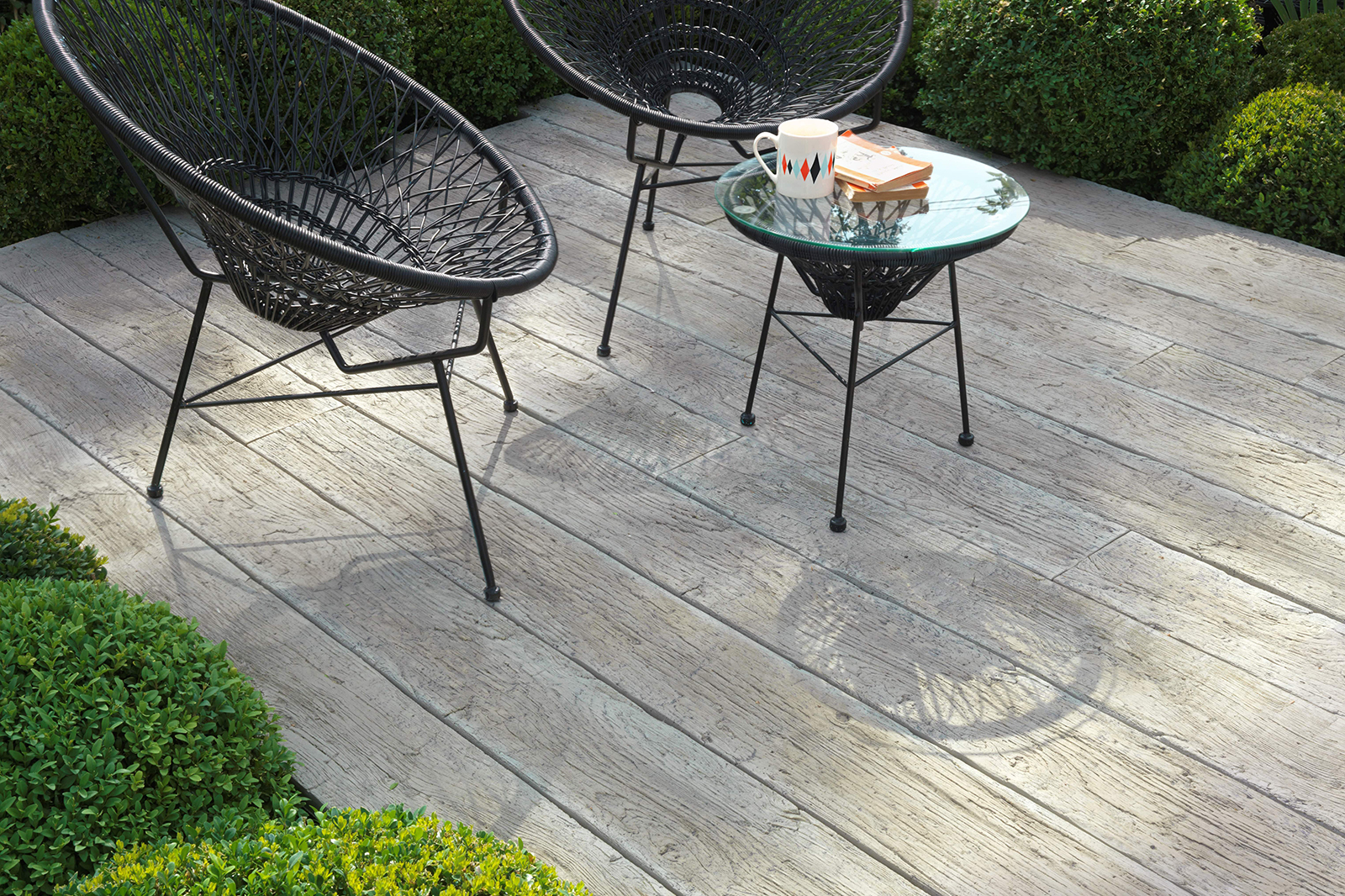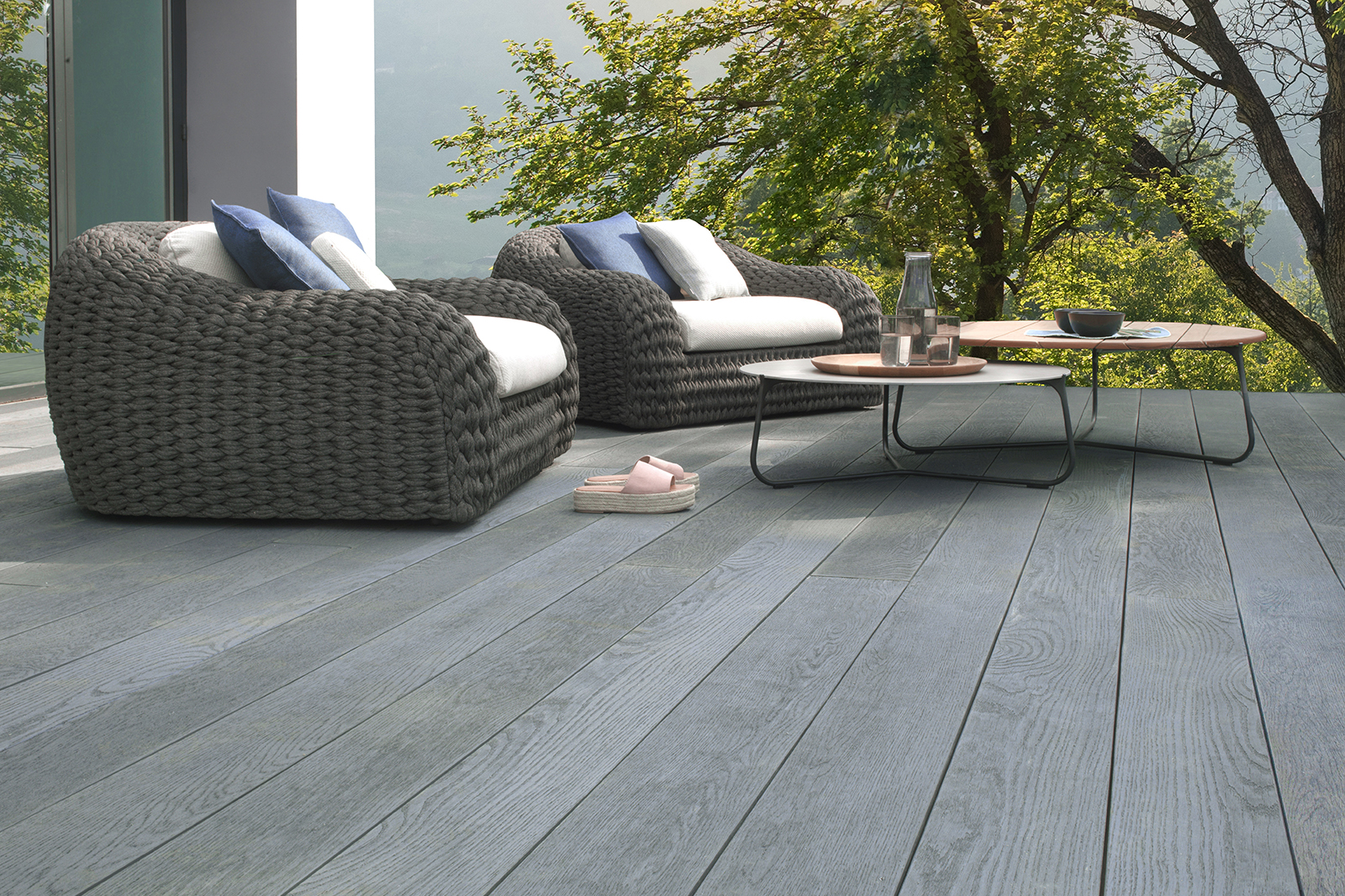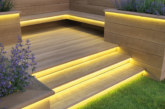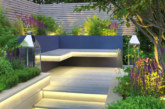
If you’re in the landscaping trade, one of the frequent concerns that project owners have about installing decking is that it requires regular maintenance. It is always good practice to manage client expectations from the start – nothing is truly maintenance free, but the degree of maintenance depends on what you choose to install. Providing the project owner with the information they need to make informed decisions about what’s best for them can really set you apart from other suppliers.

How often does decking need to be ‘maintained’
Whatever decking material is used, it is always a good idea to observe a few rules and preventative measures all the time, rather than just once a year:
• Use a stiff outdoor broom to remove debris from the surface. Algae will grow on surfaces where there is light, moisture and nutrition so best to avoid any build up.
• Like any surface, quickly remove anything likely to stain, such as cooking fat, berries or animal droppings.
• Be aware that decking placed underneath trees may result in sap on the boards which is difficult to remove, as well as frequent bird droppings!
• Cushioning the feet of outdoor furniture can help prevent scratches
• Placing a firepit/chimenea/brazier directly on the boards can result in damage – use a scorch proof material, just in case.
Timber decking
Make your client aware that timber decking will fade and warp over time if left untreated – it is important that they understand this from the outset. Take time to explain the measures that you are taking to reduce the likelihood of this. In addition to the above measures, timber decking will require regular cleaning and oiling/staining to protect it and keep it looking good. Not all wood is the same – for instance oil can’t be used on certain hardwood decking like teak or balau wood. This is because it is already naturally oily and has a very dense grain that can be hard to penetrate.

Composite decking
If your client is shying away from the idea of regular oiling and staining, composite decking could be the answer they are looking for. For example, Millboard offers a wide range of wood-look decking which is stunning to look at, sound in all weathers and simple to look after. Its polymer resin construction means that it doesn’t rot, warp or twist, and doesn’t need to be sanded and oiled like natural wood, yet it still looks the part because it is hand-moulded from carefully selected oak timbers to produce a completely natural-looking grain. Millboard requires only occasional cleaning – around twice a year – and just with soapy water, so it could be the solution for any client who has reservations about warping and fading or sanding and oiling.
Trusted adviser
Being able to help a client make the right decision for their circumstances can help to make you their trusted adviser, and one they are likely to recommend to others. Setting out the pluses and minuses that different options is a better recipe for long-term, repeat business than clients having their expectations unduly raised only to be disappointed later.



